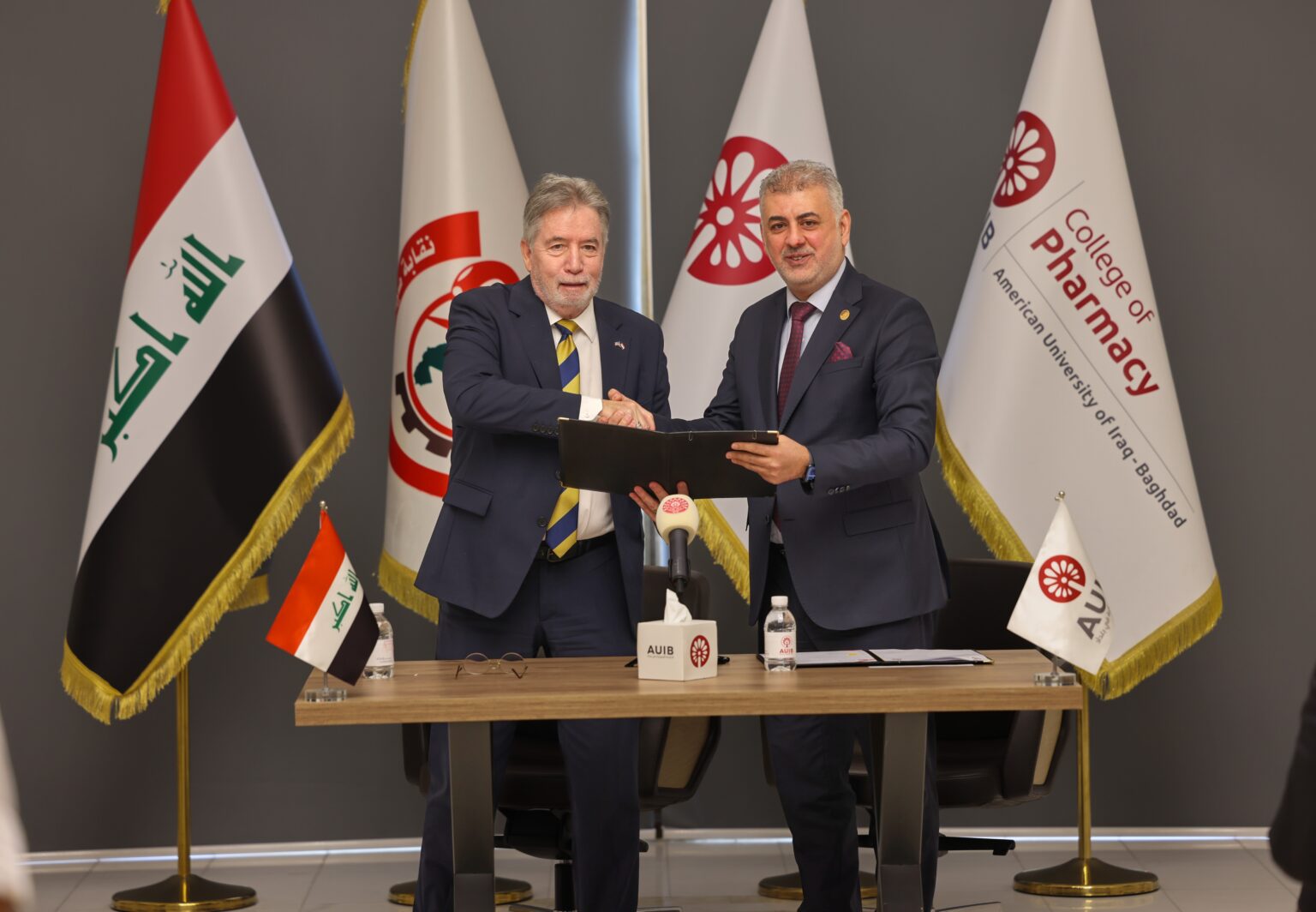On behalf of the American University of Iraq-Baghdad (AUIB), AUIB President, Dr. Michael Mulnix, signed a Memorandum of Cooperation with the Syndicate of Iraqi Pharmacists, represented by its Chairman, Dr. Hayder Fouad Al-Sayegh, in a ceremony at AUIB campus, attended by officials and members of the Syndicate and senior members of AUIB faculty and staff.
Dr. Mulnix welcomed to campus the honorable guests, briefing them on AUIB’s inception and the development of its colleges and programs, as well as the colleges and programs to be launched in the foreseeable future. He congratulated the College of Pharmacy, its faculty, and Dean, Dr. Achraf Al-Faraj, on the development of the College’s degree programs, highlighting the College’s “incredibly impressive” laboratories. Dr. Al-Sayegh spoke of Baghdad as a seat of “science, knowledge, and civilization” that will not succumb to conflict and wars, applauding all the serious work being carried out at AUIB, and expressing his looking forward to engaging the University in cooperation “in all that serves (the advancement of the profession of( pharmacy and the future of the Iraqi people,” and the creation of a promising professional future for students.
In signing the Memorandum of Cooperation, the two parties lay out a framework for “strategic educational partnership and cooperative research,” thus enhancing the educational opportunities before AUIB students, especially by making available to them internships at clinical healthcare centers and facilitating the exchange of knowledge between the two parties, including via cooperative research projects “that contribute to the advancement of the pharmacy profession and the improvement of healthcare in Iraq.” In addition to developing academic curricula and sharing best professional practices established upon evidence, the two parties will cooperate, according to the Memorandum, in enhancing professional development programs, such as continuing education courses, workshops, and seminars that aim to boost pharmacists’ competencies. The Memorandum also stipulates the two parties’ cooperation and exchange of expertise in the organizational aspects of the profession and in developing relevant policies, as well as their collaborative engagement in awareness-raising programs on health issues, and in relevant volunteer activities.
AUIB Signs Memorandum of Cooperation with Syndicate of Iraqi Pharmacists
